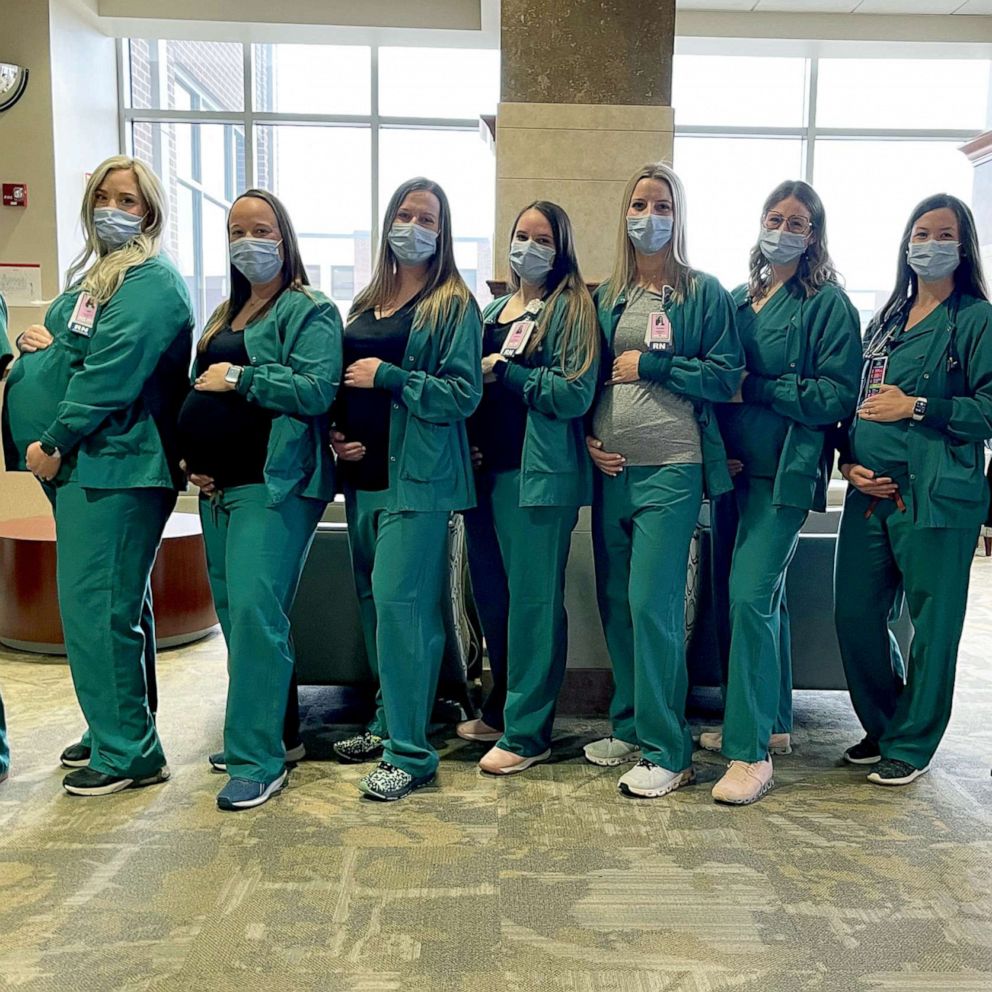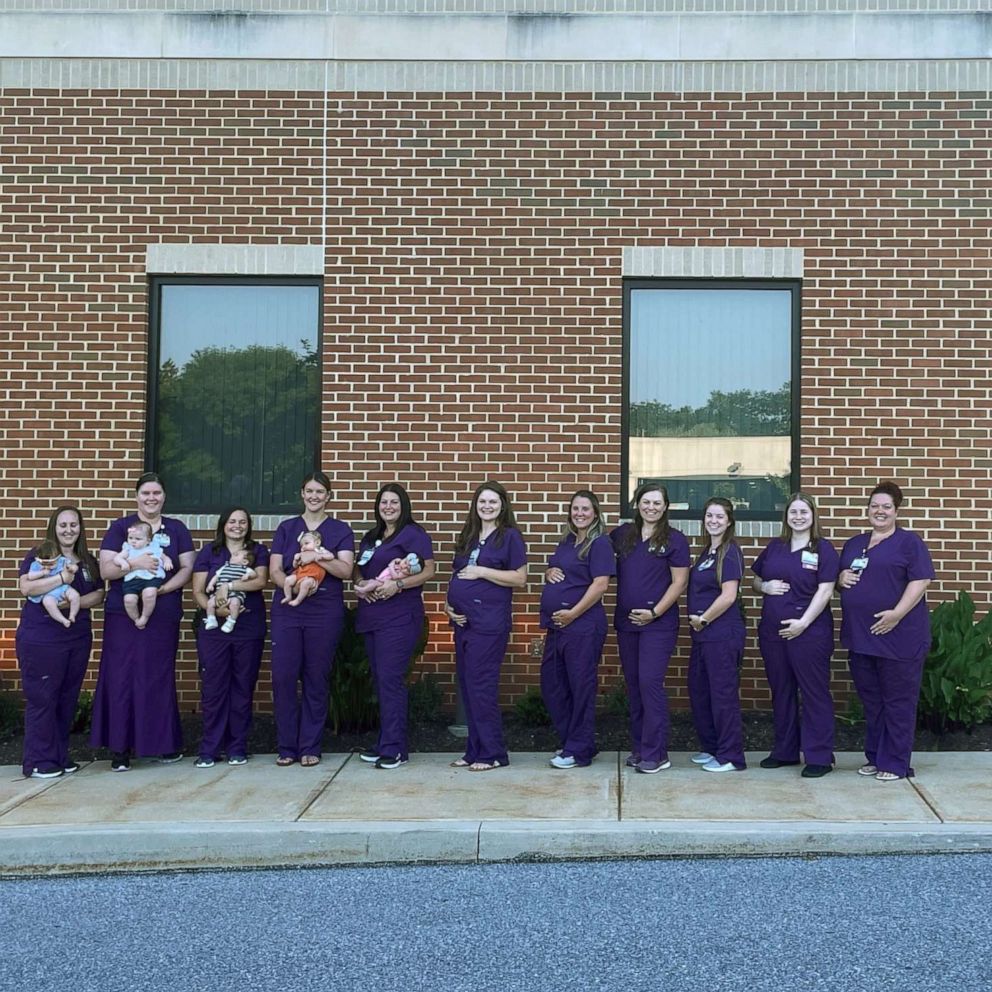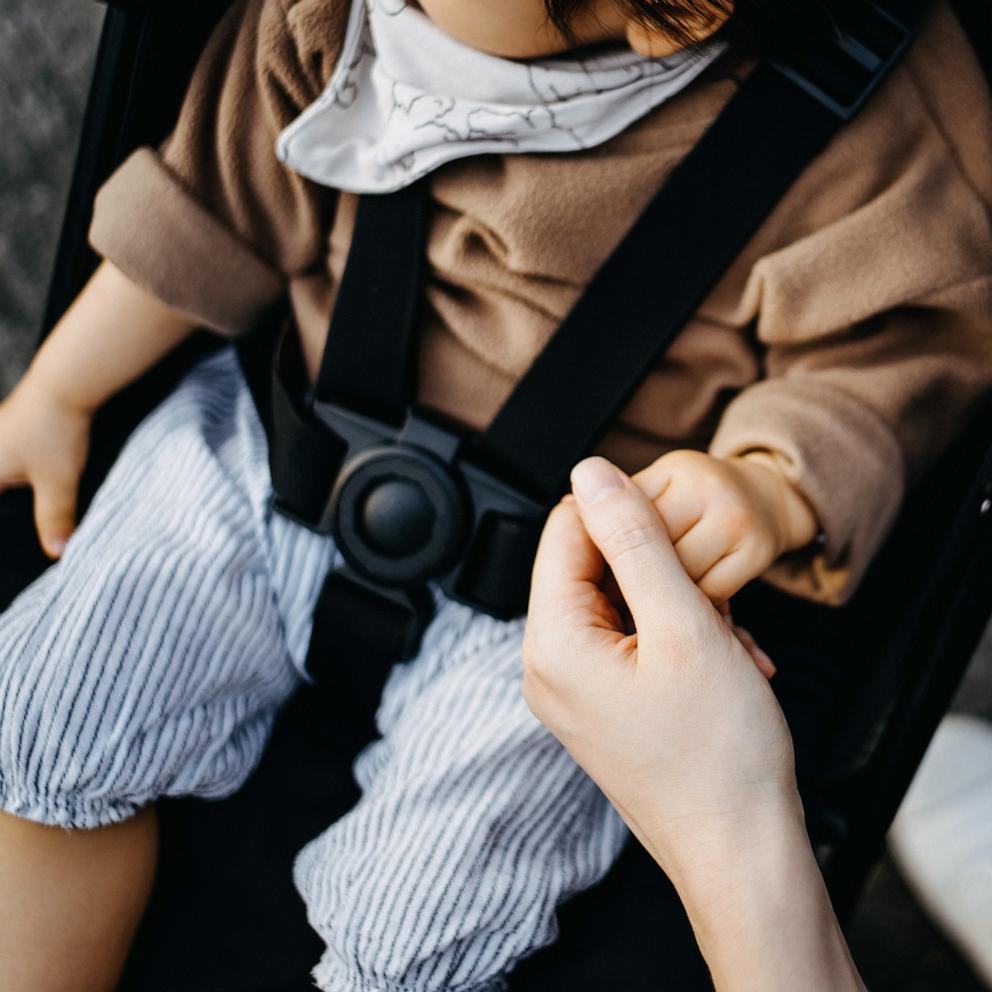Back-to-school baby boom: 8 teachers give birth in 1 school year
The school year is starting in an adorable way at one Connecticut elementary school, with the addition of eight new babies.
Eight teachers at Long Hill Elementary School in Shelton were pregnant at the same time and gave birth over the last school year.
The teachers' babies were born between last September and this past May -- at a rate of nearly one baby per month -- according to Bridget Dinatali, a special education teacher who gave birth to a daughter in February.
Now, as the teachers prepare to go back to school later this month, the babies all range in age from 3 months to 10 months, according to Dinatali.
Amanda Dempsey, a kindergarten teacher, gave birth to her daughter last October.
She told "Good Morning America" that at the beginning of the last school year, it seemed like a new pregnancy was being announced weekly.
"The emails kept coming, like baby No. 1, baby No. 2," Dempsey said. "The big thing that everyone was saying, and probably continues to say, is, 'There must be something in the water.'"
For Dempsey, the pregnancy boom hit close to home, as her co-kindergarten teacher was also pregnant.

Both Dempsey and Dinatali taught in a wing of the school that included seven of the eight pregnant teachers.
Long Hill Elementary is a preschool through fourth grade school that has around 60 staff members total, according to the school's principal, Andrea D'Aiuto, who was among the first to find out about each pregnancy.
"Many of them told me in person, individually. We often joked that they told me one at a time instead of several at the same time as to not overwhelm me," D'Aiuto told "GMA." "We are a true family at LHS, so with each pregnancy announcement we were equally excited to welcome these babies to our school family."
Dempsey and Dinatali said the multiple pregnancies garnered funny and sweet comments from students who wondered daily when the babies would arrive.
D'Aiuto said she often heard students say, "There are so many babies."
Throughout their pregnancies, both Dempsey and Dinatali said they found it very helpful to be surrounded by friends and coworkers going through the same thing.
"Everyone talks about 'it takes a village,' and there's not always a village there that's just built in -- but in our case, it is sort of a built-in village," Dempsey said. "It's nice to be able to throw ideas around or just talk about the hard things, like being sleep-deprived, and the exciting things, the milestones and all that."
Dinatali said having the counsel of moms like Dempsey and others who have been through pregnancy and childbirth before has been especially helpful for her as a first-time mom.
"I was just ending my first trimester when the school year started, so to have these veteran teachers in the hallway that were already first-time or even second-time moms as different things happen ... it was so great to just go to these other women and colleagues and just say, 'Hey, I'm experiencing this, did this happen to you? Or what do you recommend?'" she said, adding that parenthood can otherwise feel "isolating."
The village of support has continued among the teachers beyond pregnancy, according to both Dempsey and Dinatali.

They said there is a text chain among all the new moms, and they all recently gathered together for the babies' first playdate.
"To be in the same boat as people who are like-minded and we've known each other for so long, and then to have our kids be the same age, I think they call that unicorn friends," Dempsey said. "Everyone is in the same place, same time, same age."
What's behind a workplace baby boom?
Over the past several years, there have been countless examples of workplace baby booms, from over one dozen nurses in one hospital's oncology unit to nearly half of one school's teaching staff to seven pregnancies at one fire station.
The question on everyone's minds is, can there really be something in the water at these places? Is there some way to medically explain the phenomenon?
The answer, doctors say, is no.
"More likely, I think it's people who are around the same age, going through the same thing, and they see people getting pregnant and being able to handle it," Dr. Joanne Stone, director of maternal-fetal medicine at Mt. Sinai Hospital, told ABC News previously . "It's more of an atmospheric thing than there's any medical reason for it."
Stone said baby booms are more likely a sign that the women's and men's employers are doing something right in providing a positive workplace environment for expectant parents.
"Unfortunately, there are some where [pregnancy] is looked down upon," she added.
Dr. Richard Beckerman, chair of the Department of Obstetrics and Gynecology at Sibley Memorial Hospital in Washington, D.C., agreed with Stone.
"I don't think it's a medical marvel as much as it's a really neat and fun-loving incident," he said. "It's a great human interest story and a nice thing to see."
Scientific or not, it's still beneficial for the expectant mothers, Stone and Beckerman added.
"I think it's always nice," Stone added, "to get that support and to be able to share how you feel and to feel validated -- to not feel so bad if you're tired and you need to put your feet up for a moment. Everyone understands. It's a positive feeling."







